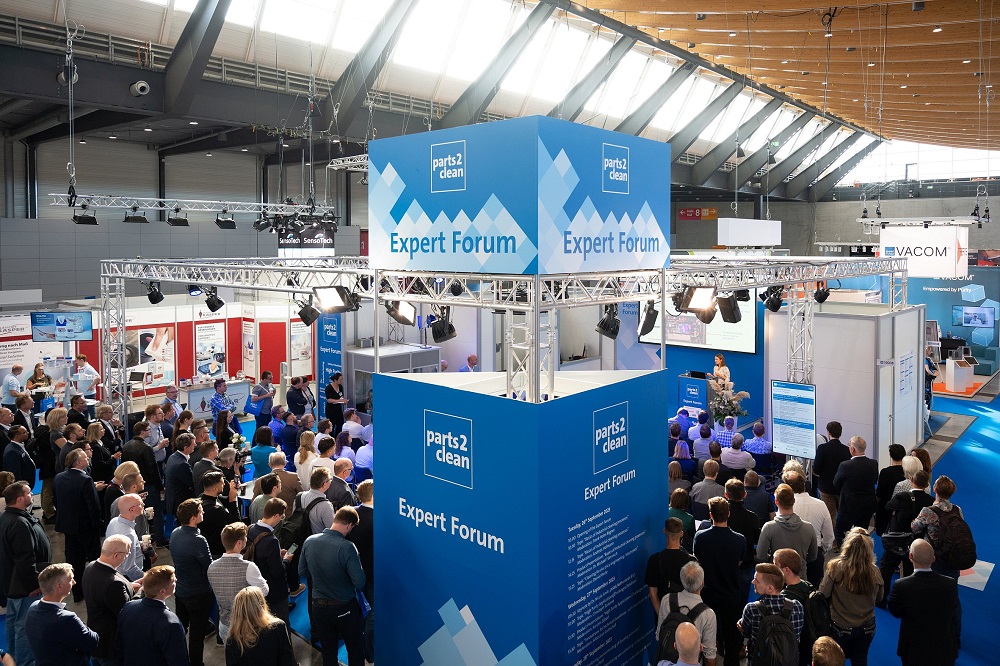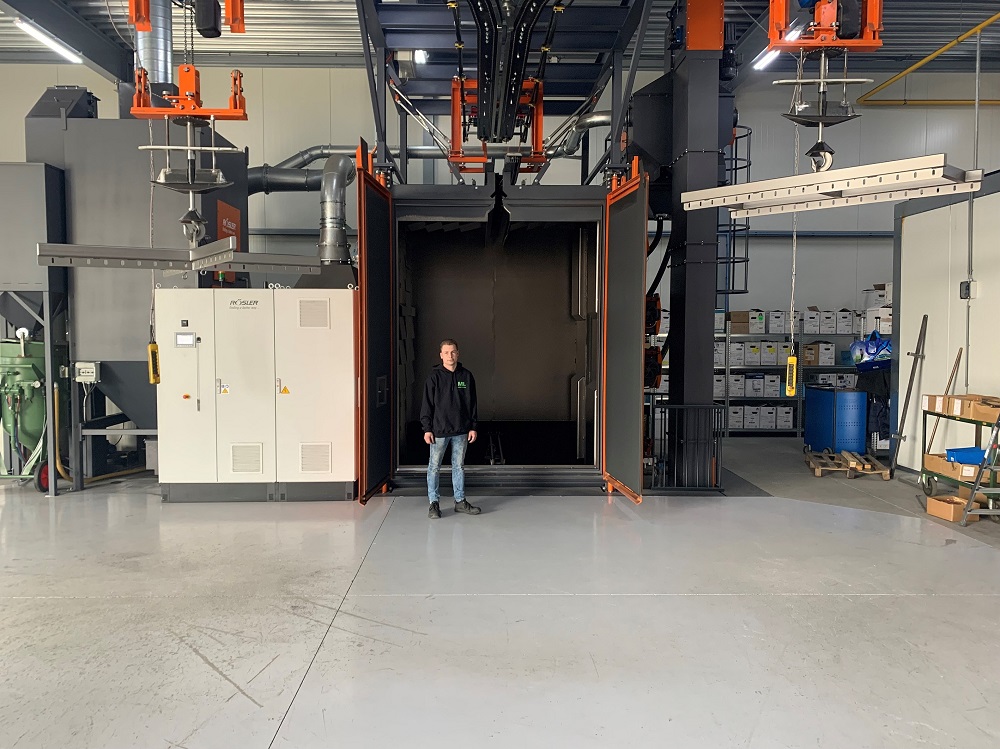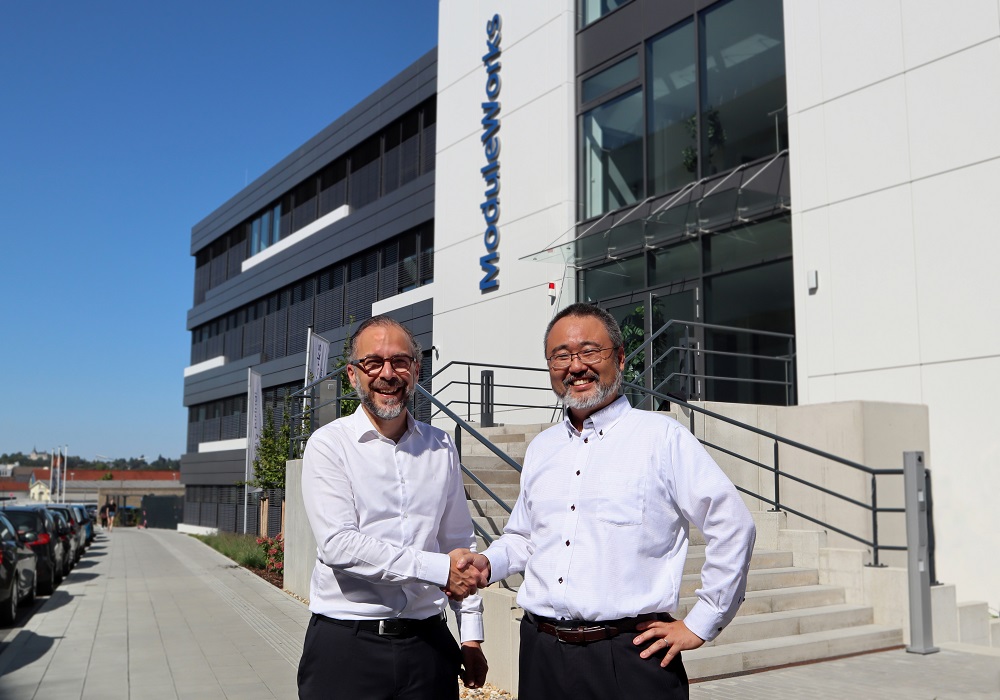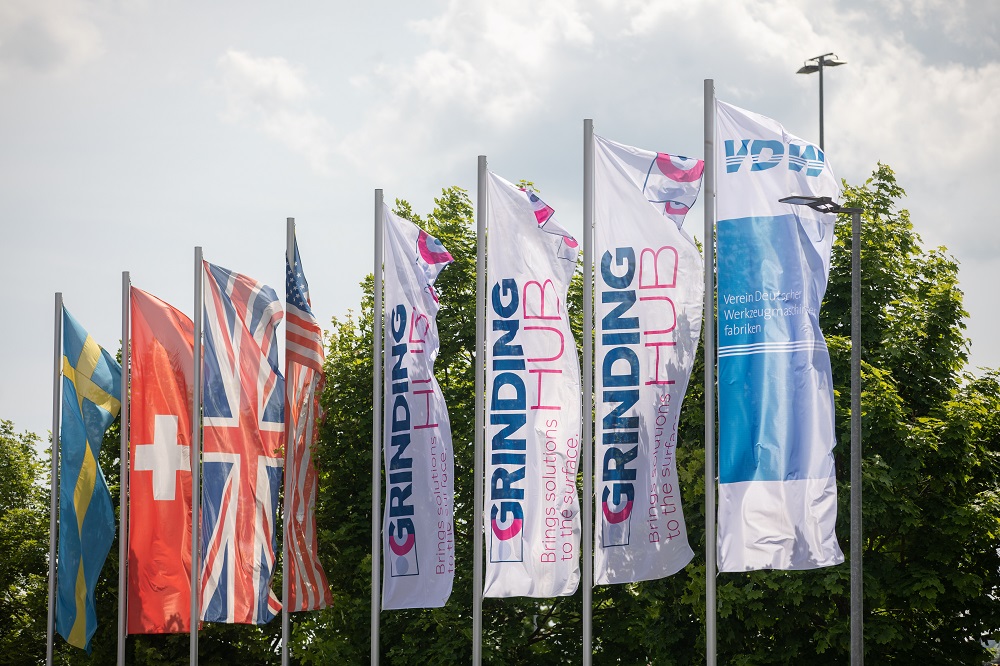The economy is undergoing a transformation that poses challenges for many areas of industry. New products and various megatrends require adjustments to manufacturing technologies, as well as to the range of products and services available. Ecoclean GmbH is proactively addressing this change through greater diversification of its solution portfolio for industrial component cleaning and by introducing the new business area of hydrogen technology.
Energy transition, sustainability, demographic change, mobility, automation and digitalisation, and security: these megatrends are resulting in technological and social changes. And at an increasingly rapid pace. This development demands increasingly higher flexibility and agility from companies, particularly in the field of industrial parts cleaning. Whereas yesterday it felt like the automotive industry was setting the standards in terms of cleanliness requirements, today it is completely different industrial sectors, each with its own specific requirements.
Ecoclean, a global specialist in the supply of equipment and systems for industrial component cleaning, surface treatment and automation, is responding to these changes with a future- and market-oriented diversification strategy. The course for this approach was set several years ago with corresponding financial and personnel investments. As a result, new solutions for high-tech industries are now available, in addition toequipment and systems for tasks in the previous sectors, such as automotive and its associated supply chain, mechanical engineering, joining technology, the jewellery and watchmaking industry, and the aerospace arena.
Also included in this ensemble is the semiconductor industry and its suppliers.To be able to manufacture ever smaller and more powerful microchips by means of EUV lithography, means placing extremely high demands on the components required for the production equipment in terms of purity. In addition to ultra-fine particulate residual impurities in the nanometre range and extremely strict specifications regarding filmic contamination, outgassing rates for organic substances and residual moisture as well as ‘prohibited’ substances/elements play a quality-critical role. Likewise, it is necessary to meet stringent cleanliness requirements for vacuum technology components in the UHV, XHV and UCV range –such as those required in high-power laser systems, high-tech measuring instruments and analysis equipment, for example.
Precision optics, micro-optical parts and sensor systems, among others for semi-automated and autonomous driving as well as industrial digitalisation applications, also require avery high degree of cleanliness for lasting fault-free function. For these challenging tasks, Ecoclean offers industry and application-specific solutions from pre-cleaning to intermediate and final cleaning connected to or integrated in a cleanroom. For the design of process and plant technology, the company has its own High Purity Test Centre with a validated clean room and corresponding measurement technology.
High cleanliness requirements have always been commonplace in medical technology. With the introduction of the European Medical Device Regulation (MDR), the requirements for cleaning medical devices such as implants, instruments and equipment, as well as for qualification, documentation and traceability of the processes, have become even stricter. In the meantime, the US Food & Drug Administration (FDA) is planning to harmonise its quality system regulation with the MDR, so that uniform regulations will apply regardless of market access.
To solve the very different tasks in medical technology in a requirement-oriented, efficient and sustainable manner, Ecoclean offers a complete and globally available portfolio of qualified cleaning systems. Co-operation with renowned partners also enables the realisation of turnkey projects with corresponding packaging and cleanroom solutions.
Software specially developed for medical technology, RFID technology and audit trails ensure the complete fulfilment of all specifications regarding component identification, documentation and traceability. In addition, the company’s experts provide support with qualification (IQ, QQ and PQ) on request. Thanks to the Ecoclean’s comprehensive medical technology and regulatory know-how, combined with extensively equipped technology centres (including a cleanliness laboratory and validated cleanroom), it becomes possible to devise the technically and economically optimal solution for every cleaning task. The potential duplication of this solution for further production sites is straightforward, a process that subsequently accelerates qualification and commissioning.
By entering into the development, manufacture and sale of electrolysers for the production of green hydrogen and solutions for its use, the company is opening up a new business area. To this end, Ecoclean and the Zentrum für Sonnenenergie und Wassersoff-Forschung Baden-Württemberg (ZSW) are pooling their expertise in the joint ‘EcoLyzer BW’ project. Based on robust and well-tested system technology for alkaline pressure electrolysis developed by the ZSW and Ecoclean’s expertise and decades of qualification in process engineering and industrial production technology, electrolysers are designed as modular systems with compact standard modules.
With power classes initially ranging from 1-10 MW, they enable the simple and cost-efficient construction of electrolysers adaptable to a wide range of applications. Typical uses include those for industry, mobility, energy supply for neighbourhoods and storage of re-generatively produced surplus energy from wind power and photovoltaic plants.
A first solution in this area came to fruition in September 2023 with a test rig for alkaline pressure electrolysis. It will make it possible to test and validate electrolysis stacks with an output of up to 500 kW and a diameter of 1200 mm.Through this diversification strategy, Ecoclean is helping to meet the challenges associated with disruptive developments, as well as various megatrends.
For further information www.www.ecoclean-group.net



















